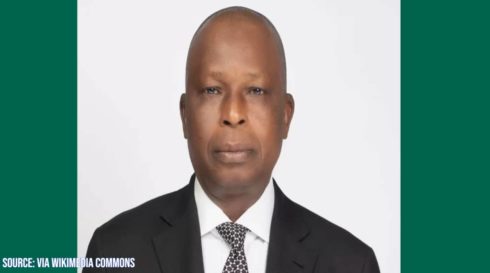Lateef Fagbemi, the Attorney General of the Federation (SAN), has officially intervened in the ongoing #EndBadGovernance protest case. His involvement has raised significant interest, especially given the high-profile nature of the case and the public attention surrounding it. Lateef Fagbemi has requested the case file from the police, signaling the importance of his intervention and underscoring the government’s commitment to ensuring that due legal processes are followed.
This intervention is expected to expedite the legal proceedings associated with the protest case, which stems from the #EndSARS movement that gained momentum nationwide. By assuming a more direct role, Lateef Fagbemi seeks to address any procedural delays and ensure that justice is served in a timely manner. This move is seen as a response to calls from citizens for accountability and transparent legal processes regarding issues of governance and civil rights.
Lateef Fagbemi Directs Director of Public Prosecutions for Expedited Court Date
In a notable development, Attorney General Lateef Fagbemi has issued directives to the Director of Public Prosecutions (DPP) to explore options for scheduling an earlier court date for the #EndBadGovernance protest case. This directive marks a proactive stance aimed at accelerating judicial procedures in a case that has stirred national debate. Fagbemi’s directive is expected to align with the public’s demand for prompt resolutions in cases tied to civil activism.
The request for an expedited court date underscores the Attorney General’s focus on timely justice, especially concerning cases that involve civic demonstrations. By addressing this need for urgency, Lateef Fagbemi aims to prevent prolonged legal backlogs and demonstrate the government’s commitment to upholding citizens’ rights to peaceful protest within the bounds of the law. His directive to the DPP highlights the necessity of balancing legal requirements with a respect for public concerns.
Public Sentiment and Calls for Accountability Amid Legal Proceedings
The #EndBadGovernance protests have resonated deeply with citizens across Nigeria, with many calling for accountability in governance and protection of civil liberties. Public sentiment around the case is strong, with advocates expressing concerns over delays in the legal process. Citizens have taken to social media and other platforms to voice their demand for transparency and fairness, viewing the case as a landmark moment for civil rights.
The Attorney General’s intervention has thus been welcomed by many as a positive development. By addressing the case directly, Lateef Fagbemi is seen as responding to the people’s call for a more accountable government. His efforts to expedite the case proceedings may help restore public confidence in the judiciary, and his leadership on this matter is closely watched as a test of the government’s dedication to justice.
The Role of the Attorney General in Ensuring Justice and Fair Process
As Attorney General, Lateef Fagbemi holds a crucial role in overseeing the legal framework within which cases like the #EndBadGovernance protest are managed. His responsibilities include safeguarding the rule of law, ensuring the integrity of the judicial process, and upholding citizens’ rights. By personally intervening in this case, he demonstrates an active commitment to these principles, reflecting his duty as a legal custodian.
Lateef Fagbemi’s intervention is seen as an essential step in ensuring that the case is handled without unnecessary delays, reinforcing the Attorney General’s role in promoting swift justice. This case provides an opportunity for the Attorney General to exemplify his commitment to transparency and judicial efficiency. His proactive measures signify a broader intent to reform and improve Nigeria’s legal processes.
Legal Experts Weigh In on Attorney General’s Decision
Legal experts have responded favorably to Lateef Fagbemi’s decision to request the case file and seek an earlier court date. Many see this as a strategic move that emphasizes efficiency and judicial responsiveness. Analysts believe that this proactive approach could serve as a precedent for handling future cases of national importance, especially those involving public protest and demands for good governance.
Lawyers and civic advocates have highlighted that Lateef Fagbemi’s intervention could influence similar cases, underscoring the need for a timely and fair trial process. His actions could also strengthen the public’s perception of the legal system as a means to resolve issues of civil interest. As more legal experts discuss the implications, Lateef Fagbemi’s approach could inspire reforms in handling protest-related cases and ensure a swift resolution in the current proceedings.
Future Implications for Civil Rights and Judicial Processes
The outcome of the #EndBadGovernance protest case holds significant implications for the future of civil rights in Nigeria. If Lateef Fagbemi’s intervention leads to a fair and timely trial, it could set a new standard for how cases involving civic protests are managed. This case could thus become a benchmark for government responsiveness to citizens’ rights to peaceful assembly and expression.
Observers suggest that Lateef Fagbemi’s handling of the case may influence how the judiciary addresses cases involving public activism and governance issues. The Attorney General’s approach could help build a more resilient legal framework that balances the rights of individuals with the nation’s legal requirements. As the case progresses, the impact of this intervention will be closely monitored by both citizens and international observers alike, potentially shaping the landscape of civil rights in Nigeria.
Table of Contents
Discover more from OGM News NG
Subscribe to get the latest posts sent to your email.














